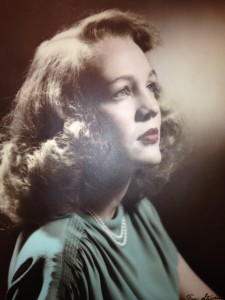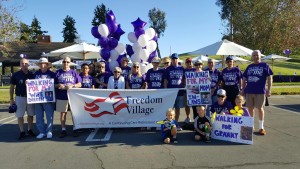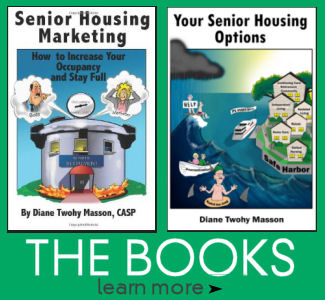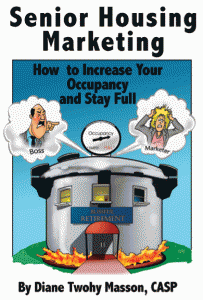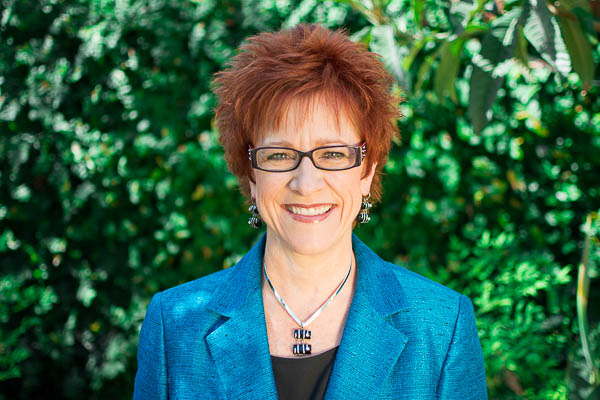Marketing 2 Seniors | The Blog
with Author: Diane Masson
New UCI Alzheimer’s Study
 Yesterday, I had the pleasure of hearing Dr. Steven G. Potkin speak about a new Alzheimer’s study to prevent Alzheimer’s at Angel Stadium of Anaheim. Wow, I hope this study is successful.
Yesterday, I had the pleasure of hearing Dr. Steven G. Potkin speak about a new Alzheimer’s study to prevent Alzheimer’s at Angel Stadium of Anaheim. Wow, I hope this study is successful.
Dr. Potkin said that I could share all the information with you because he is currently seeking senior candidates who are 65 to 85 years of age (with normal memory) for this clinical study on Alzheimer’s disease (AD).
He is investigating a new drug intervention that may reduce the impact of a protein known as “amyloid” or “beta amyloid” forming plaques in the brain. Scientists believe that accumulation of amyloid in the brain may play a key role in the eventual development of AD-related memory loss.
Dr. Potkin is conducting the research study at the University of California Irvine (UCI) Medical Center in Orange, California. It is called the Anti-Amyloid Treatment in Asymptomatic Alzheimer’s study (the “A4” study for short) for seniors who may be at risk for memory loss due to AD.
A senior participant and his or her study partner need to be willing to be part of a three-year study. The study partner (must have frequent contact with the senior participant) would describe changes in the senior participant’s health to the study staff on a weekly basis.
There will be a PET scan at the initial screening meeting and at the conclusion of the three-year study to determine whether the senior participant has evidence of an elevated amyloid build-up. Senior participants will also receive monthly study drug infusions.
For more detailed information and the total compensation for completing the study, please contact Andrea Weideman with Dr. Steven G. Potkin’s Reseach Team at: 714-456-5697
My mother-in-law has Alzheimer’s and I pray this research can prevent future seniors from getting AD in the first place. Good luck to Dr. Potkin and the whole research team at UCI.
During my time with Dr. Potkin, he commended me for writing the book, “Your Senior Housing Options,” and said it is a much needed resource for seniors.
Diane Masson advocated for her mom who had dementia for nine years and her mother-in-law currently lives in a memory care community. Diane writes a Tips2Seniors blog every week and published a book to take the guess work out selecting senior housing before, during or after a health care crisis, “Your Senior Housing Options.” She has worked in senior housing for 17 years and her first book, “Senior Housing Marketing – How to Increase Your Occupancy and Stay Full,” is helping senior housing professionals on a nationwide basis.
Tips for an Alzheimer’s or Dementia Care Conference
Here are some tough statements that family members can hear at an Alzheimer’s or dementia care conference for their loved one (who might be residing in assisted living, memory care or skilled nursing care):
- She can’t direct her own care…
- Is regularly disoriented…
- Needs full help with bathing and dressing…
- She can become frustrated…
- Can be resistant to care…
- Does not always remember to use her walker…
It can proceed into an in-depth conversation about the ability of your loved one’s communication:
- She is not very verbal…
- She has improved in the last four months from not speaking at all (because she was still coming off of the psychotropic medications) to being a little more verbal.
- The staff has to use phrases or questions that are seven words or less to create less confusion for her.
- The staffs’ goal is to elicit a “yes” or “no” response, so she can make choices.
Then a group discussion can proceed about who she can still recognize and if she can still call anyone by name (this is tough one):
- Does she recognize you?
- She thinks her daughter is her sister.
How much food is or is not consumed?
Our family has experienced witnessing continual weight loss of my mother-in-law for 10 months. She is eating 50% of her food, but can pop out of her chair and start wandering sporadically while dining. She walks almost continually. The staff have problem solved this by feeding her in the country kitchen instead of the dining room to increase her food intake.
What should you ask in a care conference? Don’t be intimidated; no one knows your loved one better than you. Be his or her advocate to the best of your ability.
- Find out exactly what medication they take and why. Sometimes they were given a medication like a psychotropic in the hospital and no one is paying attention to the fact it is not necessary anymore.
- How much exercise or movement do they experience? Staying mobile is important.
- Inquire about live entertainment. Your loved one may be refusing to go to live entertainment and you know they love music. The only reason they may be refusing is because they can’t HEAR the caregiver asking them to go. Maybe the caregiver needs to speak up or…
- Ask about music therapy. It can be very affective for dementia and Alzheimer’s. If they tried it once and it was refused, try again. Every day is a new day. Seniors with dementia (such as my mom) can be more receptive and oriented in the morning.
- How much food do they eat? Maybe they are not eating because they have lost teeth (this happened to my mom)? Food adjustments can be made.
Is there anyone else out there dealing with a parent who has dementia? It is not easy. What tips can you share?
Diane Masson advocated for her mom who had dementia for nine years and her mother-in-law currently lives in a memory care community. Diane writes a Tips2Seniors blog every week and published a book to take the guess work out selecting senior housing before, during or after a health care crisis, “Your Senior Housing Options.” She has worked in senior housing for 17 years and her first book, “Senior Housing Marketing – How to Increase Your Occupancy and Stay Full,” is helping senior housing professionals on a nationwide basis.
Proud to Walk For Alzheimer’s
If enough of us keep walking and raising funds for Alzheimer’s we will eventually find a cure for this detrimental disease that affects so many seniors including my mother-in-law.
Almost $110,000 was raised by 741 walkers at the Laguna Niguel Alzheimer’s Walk on October 24, 2015. It was my first time raising awareness for Alzheimer’s in California. I was part of team Freedom Village (a Continuing Care Retirement Community in Lake Forest) who came in seventh for fundraising.
My mom had dementia for nine years and died in April. I watched the disease rob her of the ability to communicate. Her last and final roommate in skilled nursing was a wonderful woman who is still battling Alzheimer’s. I rode the bus to and from the Alzheimer’s walk with her husband. He shared the struggle of trying to keep his wife independent as long as possible. He had alarms on the doors to wake him if she tried to wander off in the night. Eventually, those alarms where not enough to contain her at night. He had to find her a safer home.
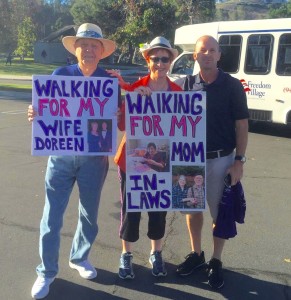 This brilliant husband took his wife one day a week to Silverado memory care to participate in activities. After several months he increased it to two times a week. She was so comfortable there that she would walk in and immediately be engaged with a staff person and walk to an activity. Then the decision was finally made to make it a permanent move. This time the community recommended that he not return for one week, so that his wife could adjust. She did adapt. In her three years at the community, she never asked once to go home.
This brilliant husband took his wife one day a week to Silverado memory care to participate in activities. After several months he increased it to two times a week. She was so comfortable there that she would walk in and immediately be engaged with a staff person and walk to an activity. Then the decision was finally made to make it a permanent move. This time the community recommended that he not return for one week, so that his wife could adjust. She did adapt. In her three years at the community, she never asked once to go home.
At the walk, I learned that Alzheimer’s affects more women than men. It was a beautiful experience to walk side-by-side with other people that have been touched by this mind-altering disease. People carried blue flowers if they had Alzheimer’s. I carried a purple flower because my mom died from dementia. Other colors of flowers that people carried signified being a caregiver or financial supporter of Alzheimer’s.
All the Freedom Village residents and staff had a blast. Imagine what we can do next year in group participation and fund raising. We will build on our momentum and team enthusiasm from our first annual walk for Alzheimer’s.
How have you raised awareness for Alzheimer’s? Let’s keep this conversation going on social media to find a cure soon.
#Walk2EndALZ #freedomvillagelakeforest #silverado
Diane Masson is a sought after author, blogger, speaker and regional marketing director. She is very passionate about advocating for seniors on a nationwide basis and educating them about their future choices. She just published a book to help seniors take the guess work out of selecting senior housing options or staying home. It is called, “Your Senior Housing Options.” Her other book has been popular with senior housing professionals on a nationwide basis. It is called, “Senior Housing Marketing – How to Increase Your Occupancy and Stay Full.” You can contact her through her website at tips2seniors.com.
Poor Seniors – Needing Care – What Will They Do?
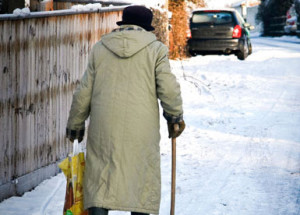 Around 12.9% percent of seniors live in poverty in this nation. They can’t ever enjoy a nice retirement or assisted living community with services! It broke my heart to participate in a health fair at a senior center in Riverside, California a week ago. About a 1000 seniors attended.
Around 12.9% percent of seniors live in poverty in this nation. They can’t ever enjoy a nice retirement or assisted living community with services! It broke my heart to participate in a health fair at a senior center in Riverside, California a week ago. About a 1000 seniors attended.
Most seniors were looking for Section 8 or HUD Housing retirement options. What are these options? It’s renting an apartment based on a percentage of their income or a flat fee. It is simply an apartment building that houses seniors. The senior will most likely not have onsite services and support as they age and dementia begins.
Subsidized senior housing typically does not offer meals, entertainment, wellness classes, transportation to medical appointments or pay for a senior’s cable TV.
It’s disheartening to know that American seniors will be pushed aside to fend for themselves. Why is America trying to save the world and can’t take care of our own seniors? In many states, low-income seniors have no way to afford assisted living. Sure we have Medicaid and Medical when a senior becomes almost completely incapacitated and needs skilled nursing care.
What about that in-between step when a senior needs support either physically, mentally, nutritionally or is lost in dementia? What about that intermediate stage when it has become too difficult to grocery shop or cook for themselves. What about when a senior’s arthritic fingers can’t open a jar or button a blouse? Maybe they can rely on family, friends or neighbors? What if they need help at 7:00 AM or in the middle of the night? What if they don’t ask for help?
I spoke with seniors at the health fair who lived with their adult children. Other seniors had grandchildren depending on them for support. Finally, several seniors had adult daughters caring for them. I asked one frail couple, “What is your plan for your future health care?” They told me that their daughter will take care of them. I asked, “What happens when your care becomes more than your daughter can handle?” (I really wanted to ask if they were willing for their daughter to toilet them at some point.) They were sweetly oblivious to my inquiry and said that she would be able to handle it.
We have a crisis in this country. What can we do about it? Many seniors are living below the national poverty line. They can’t afford to bring in home care, nor can they afford senior housing. Meals-on-Wheels is a wonderful resource, but seniors have to be willing to ask for help.
What are your thoughts on this subject?
Diane Masson is a sought after author, blogger, speaker and regional marketing director. She is very passionate about advocating for seniors on a nationwide basis and educating them about their future choices. She just published a book to help seniors take the guess work out of selecting senior housing options or staying home. It is called, “Your Senior Housing Options.” Her other book has been popular with senior housing professionals on a nationwide basis. It is called, “Senior Housing Marketing – How to Increase Your Occupancy and Stay Full.” You can contact her through her website at tips2seniors.com.
200 Blogs and Linked in Rejects Me?
 After 200 blog posts of new content supporting the senior housing industry, why am I suddenly cast aside by LinkedIn? Do you think it is fair? In four years, I have helped tons of LinkedIn users join groups and now the groups shun my blogs?
After 200 blog posts of new content supporting the senior housing industry, why am I suddenly cast aside by LinkedIn? Do you think it is fair? In four years, I have helped tons of LinkedIn users join groups and now the groups shun my blogs?
Why?
LinkedIn and their groups have new rules to stop people from shamelessly promoting themselves. Did LinkedIn protect my quality content when people replied on LinkedIn to my posts with their own self-promotions rather than addressing the question at hand? No!
Why is LinkedIn shunning me now? It’s because I am trying to provide resources to benefit the senior housing industry and seniors through links in my articles.
- One link was to my published book that can benefit seniors and Boomer children in evaluating retirement options. Every human on this planet knows someone who could be helped by learning about, “Your Senior Housing Options.” This is a resource not self-promotion! It took me a year and a half to write it on Saturdays, while I worked full time. I paid my own money to publish this book, because I felt the message would help seniors have a better quality of life by planning ahead.
- Another link was to my YouTube TV interviews. Every video contains an educational resource topic and explains solutions for seniors and family members in crisis mode. One video is about understanding the differences between a senior staying home and paying a caregiver to help take care of them versus moving to assisted living. Another video explains the differences between rental retirement communities and Continuing Care Retirement Communities. How is this self-promotion?
The largest 55 plus community in California thought my information was of value to seniors and published my information and resources on the front page of their publication.
A radio station offered me a 15 minute interview and found the information for seniors to be so helpful that it turned into 30 minutes and another interview is already scheduled.
What is my goal? I want to bring a message to seniors across this nation that they should plan ahead instead of waiting for a crisis. Why? Because I have been working with seniors for 19 years both personally and professionally. My own mother planned ahead at age 75 and my in-laws waited for a crisis. They could not leave their home, so our family has been living in crisis mode for 10 months. My poor mother-in-law with dementia has never been the same since a hospital put her on psychotropic medications during this crisis.
Seniors need to understand the costs and consequences of waiting for a crisis. Every senior has a right to know what their choices are before a health care crisis strikes them.
There will be no links in this article to see if LinkedIn publishes me this week. Please comment if you agree that my links are resources and please comment if you disagree.
Please like this article if you found it of value and pass it on to your friends through social media. If you like what I talk about, then sign up for my weekly newsletter. You may not see me on LinkedIn in the future. Every single one of us knows a senior who has waited too long, so help educate a senior on how to plan ahead today.
Sincerely, Diane Twohy Masson
Senior Housing Contracts – Reading the Fine Print
 First, plan ahead and know that every senior has a 66% chance of needing assisted living or skilled nursing in the future.
First, plan ahead and know that every senior has a 66% chance of needing assisted living or skilled nursing in the future.
Second, do not rely on the verbal promises of senior housing sales people. Read the agreement for services or contract. If a senior does not understand it, they should ask a savvy friend or hire an attorney to help them. The majority of retirement counselors are honest and passionate about serving seniors. A few will say “anything” to get a senior to move in immediately.
How do you know if a retirement community will really take care of you or not in your future? Here are some important questions to ask EVERY senior housing community BEFORE you move from your home:
What happens when a senior needs a higher level of care like assisted living or skilled nursing?
- Will the senior be asked to leave the retirement community?
- Do they offer a higher level of care on the same campus? How much does that cost per month?
- Does an outside company bring caregivers into the senior’s apartment home to provide care? What is the hourly cost? What is that company’s reputation?
What happens if a senior falls in the middle of the night?
- Is there an emergency call system? Who responds to it? Are they medically trained?
- What happens if a senior falls and he or she can’t hit the emergency button? Will they will be found in a timely fashion?
- Is there a daily check in system?
What happens if a senior outlives their resources?
- Will they kick you out? A senior provider kicked out a senior in Houston a week ago.
- Is there a Good Samaritan Fund or Foundation to help a senior so that he or she won’t get kicked out? Is there a limit of how many seniors can be utilizing the fund at any one time?
- Or is there just a flat guarantee of care in writing that a senior will never be kicked out unless they divest their own funds on purpose by giving gifts to their children?
What else should a senior ask in order to make a good move?
These are just some of the intelligent questions that seniors should ask a senior housing provider. Other tips and advice can be found in Diane Masson’s new book, “Your Senior Housing Options.” She has recently been interviewed for TV, radio and newspaper features. Diane Masson has worked in all types of senior housing in her 17-year career. Her first book, “Senior Housing Marketing – How to Increase Your Occupancy and Stay Full,” is being utilized by senior housing professionals around the world.
Seniors and Sales People Wearing Masks
 Almost everyone wears a mask out in public. It can be exhausting to hide behind a fake exterior and pretend we have it all together. I meet seniors and sales people everyday that seemed poised and polished to the world and yet they are terrified inside.
Almost everyone wears a mask out in public. It can be exhausting to hide behind a fake exterior and pretend we have it all together. I meet seniors and sales people everyday that seemed poised and polished to the world and yet they are terrified inside.
Many seniors and sales people have lost the ability to be real and authentic. They have worked hard to create the illusion that everything is fine, because they fear showing their vulnerability.
Seniors walk into retirement communities everyday announcing that he or she is fine and “not ready yet” to make a move to senior housing. If you could pull off the mask, you might see a frightened senior who knows their memory is slipping, had a recent fender bender in the car or is just extremely lonely. That’s why they are exploring senior housing options.
Is this you?
Sale people may be dealing with an angry teenage daughter, a new baby, or ailing parents. They have to leave their breaking heart in the car and arrive for work with a mask of happiness.
Is this you?
Here are the three most common masks:
The I’m Fine Mask: You smile and say that everything is fine when your heart is breaking. It appears that you have it all, but you may feel lost inside. It is safer to hide, because people expect it.
The Performance Mask: You have the “to do” list. You keep up a frantic pace. If you stop performing then you are not worth anything at all. You want to matter and count.
The “I don’t care” Mask: You don’t bother with your looks. You do not seem to care. You are desperate to not be seen. You are certain that others will reject you.
Masks can be exhausting.
I know because I am usually wearing the performance mask. On top of working full time as a regional marketing director at two Continuing Care Retirement Communities:
- I recently wrote a book called, “Your Senior Housing Options.”
- A newspaper interview last week landed me on the front cover of the Laguna Woods Globe.
- A radio interview last week with AM 590 and the California Senior Guide will turn into a broadcast on Sunday, Oct 4th at 11:00 AM.
- Four TV interviews over the last several months are all on my YouTube channel.
My personality has always been driven. I have always increased the occupancy of any senior living community I was working with. I love achieving goals. It’s also important to create balance in my life so I don’t burn out. I just started a women’s bible study called, “Keeping the Balance.” It is already changing my life and helping me recognize the real me, so I can be authentic with you. Today, I had some me time. What a treat. Tonight I will be dancing with my husband at Oktoberfest.
Balance in life is important. The opposite of wearing a mask can be seniors and sales people who over share. They want to dump all their problems on you and it may not be at an appropriate time.
When my mom was in in later stages of dementia, her mask of pretending to be okay was gone. She just said whatever was on her mind.
How about you? What’s your mask? Have you found your balance?
Diane Masson has 19 years experience, both personally and professionally in senior housing. She is an author of two books with 5-star ratings, a weekly blogger and a regional marketing director of two Continuing Care Retirement Communities. Follow her newsletter on Tips2Seniors.com or Tips2Seniors on Facebook.
Denying Seniors Admission Based on Health?
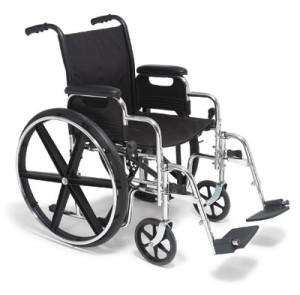 If an aging senior has a new health diagnosis or is getting frail, what might happen in his or her future?
If an aging senior has a new health diagnosis or is getting frail, what might happen in his or her future?
Many seniors don’t realize that senior living communities often have minimum health requirements. If you have a diagnosis of a progressive disease, you may not qualify for certain types of housing. If you are in the later stages of Alzheimer’s, you may only qualify for memory care or skilled nursing care.
It is illegal for a senior housing care provider to let you move in and not be able to provide for your needs. Many seniors are stunned when they arrive at an independent senior living community to be told they have bypassed an independent living setting and that an assisted living community would provide a more appropriate level of care for them.
The conversation that a retirement counselor in a senior housing community dreads most is “the talk” with a future resident. As I write this, one Continuing Care Retirement Community (CCRC) that I work with had to turn down two senior applicants in the last six weeks. One applicant had a diagnosis of dementia and could not manage alone, and the other was too frail for independent living. Even though those seniors thought they were fine to move into independent living, they only qualified for assisted living.
Other CCRCs I worked with in the past would deny people admittance if they had ever had cancer, Parkinson’s, Alzheimer’s, multiple sclerosis, or anything that would send them quickly into a higher level of care for an extended period of time. How can they do this, you might ask? Well, it is a contract for services, and as long as they are consistent with all applicants, this is considered consistent with fair housing practices.
The proceeding has been excerpt from my new book, “Your Senior Housing Options.”
Have you ever heard of denying a senior (in a wheelchair) admittance into a retirement community? A senior prospect (in a wheelchair) said it happened to them at several communities. How can this be?
“Your Senior Housing Options,” has a simplistic title, but what’s inside this new book can save a you months of research time. Hear Diane Masson’s interview of how her mother and in-law’s faced the pivotal decision to plan ahead or wait until a crisis. Learn the pitfalls from transitioning from your home to senior housing. Understand what questions to ask, insider tips and dirty secrets revealed. For weekly tips join at: Www.Tips2Seniors.com
Diane Masson has worked in senior housing for 17 years and is the regional marketing director for two debt-free Continuing Care Retirement Communities in Southern CA (Freedom Village in Lake Forest and The Village in Hemet). Her first book “Senior Housing Marketing – How to Increase Your Occupancy and Stay Full,” is being utilized by senior housing professionals across the country. Both her first book and second book, “Your Senior Housing Options,” have a 5-star rating on Amazon.com.
7 Deadly Sins of Searching for Senior Housing
Smart seniors plan ahead and research their options. Don’t get caught in a health care crisis. Once you are in crisis mode, your options may be limited. These seven deadly sins are a summation of my work with thousands of seniors during the course of my career.
Do you agree with these 7 deadly sins in the video? Do they apply for home care, assisted living, memory care, skilled nursing and Continuing Care Retirement Communities?
Your Senior Housing Options,” has a simplistic title, but what’s inside this new book can save a you months of research time. Hear Diane Masson’s interview of how her mother and in-law’s faced the pivotal decision to plan ahead or wait until a crisis. Learn the pitfalls from transitioning from your home to senior housing. Understand what questions to ask, insider tips and dirty secrets revealed. For weekly tips join at: Www.Tips2Seniors.com
Diane Masson has worked in senior housing for 17 years and is the regional marketing director for two debt-free Continuing Care Retirement Communities in Southern CA (Freedom Village in Lake Forest and The Village in Hemet). Her first book “Senior Housing Marketing – How to Increase Your Occupancy and Stay Full,” is being utilized by senior housing professionals across the country. Both her first book and second book, “Your Senior Housing Options,” have a 5-star rating on Amazon.com.
Becoming Overly Dependent on a Caregiver
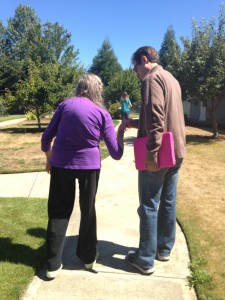 A senior can easily become overly dependent on a caregiver. A helpless 92-year-old senior woman, who is recovering from a surgery, can suddenly become isolated in her own home and becomes reliant on her new around-the-clock caregiver.
A senior can easily become overly dependent on a caregiver. A helpless 92-year-old senior woman, who is recovering from a surgery, can suddenly become isolated in her own home and becomes reliant on her new around-the-clock caregiver.
In memory care communities, seniors with dementia rely on the loving support from their caregivers or fellow residents. Joyful smiles, from a dementia resident, may only be reserved for those who see them daily. Sometimes a wife learns that her husband in memory care has decided to marry his “friend.” The “friend” might be a caregiver 50 years younger or another resident.
“Dear Abby,” recently published a letter from a man in his late 60’s. He wanted to marry a 28-year-old woman with three children. His question for “Dear Abby” was should he do it? She suggested a prenuptial agreement.
A frail senior man moved into a residential board and care home to recover from a hospitalization. His wife was optimistic about his ability to recover and return home. Her other wish was to have him improve enough to move into a Continuing Care Retirement Community with her. Unfortunately, the caregiver at the board and care home did everything for the husband. The wife begged for them to help her husband recuperate, by letting him dress himself, strengthen his legs by standing up, improve his endurance by walking around the home and etc. Instead the caregivers continued to make him 100% dependent on them, so he grew weaker and wheelchair bound. Now this couple (married for 60 years) will not be able to live together again.
Unlicensed home care workers (fly-by-night) can take over the finances of seniors while they sleep. This happened to one of my neighbors. She became a prisoner of her own home. The OC Register newspaper recently published an article about a senior who signed over her home to the caregiver who had lived with her for less than 90 days. She died with no children. The caregiver is still living in her home.
As humans we crave love and companionship. We need relationships in our lives. An isolated frail senior can easily become beholden to the one person who is sustaining their existence.
What have you seen or experienced?
Do you know a senior that is struggling? Diane Masson’s new book can help walk you or them through, “Your Senior Housing Options.” Diane has helped educate thousands of seniors in her career and shares weekly real life stories like this one. Join her blog at Tips2Seniors.com or follow her on Facebook at Tips2Seniors.
Her first book “Senior Housing Marketing – How to Increase Your Occupancy and Stay Full,” has helped new and experienced senior housing professionals (assisted living, memory care, skilled nursing care and Continuing Care Retirement Communities) around the world. Both her first book and second book, “Your Senior Housing Options,” have a 5-star rating on Amazon.com.

